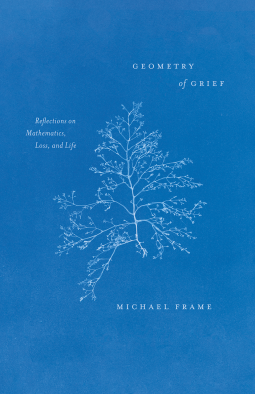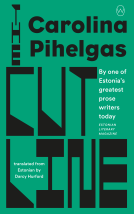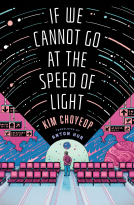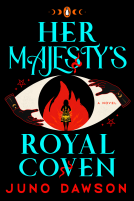
Geometry of Grief
Reflections on Mathematics, Loss, and Life
by Michael Frame
This title was previously available on NetGalley and is now archived.
Send NetGalley books directly to your Kindle or Kindle app
1
To read on a Kindle or Kindle app, please add kindle@netgalley.com as an approved email address to receive files in your Amazon account. Click here for step-by-step instructions.
2
Also find your Kindle email address within your Amazon account, and enter it here.
Pub Date Sep 08 2021 | Archive Date Sep 01 2021
Talking about this book? Use #GeometryofGrief #NetGalley. More hashtag tips!
Description
We all know the euphoria of intellectual epiphany—the thrill of sudden understanding. But coupled with that excitement is a sense of loss: a moment of epiphany can never be repeated. In Geometry of Grief, mathematician Michael Frame draws on a career’s worth of insight—including his work with a pioneer of fractal geometry Benoit Mandelbrot—and a gift for rendering the complex accessible as he delves into this twinning of understanding and loss. Grief, Frame reveals, can be a moment of possibility.
Frame investigates grief as a response to an irrevocable change in circumstance. This reframing allows us to see parallels between the loss of a loved one or a career and the loss of the elation of first understanding a tricky concept. From this foundation, Frame builds a geometric model of mental states. An object that is fractal, for example, has symmetry of magnification: magnify a picture of a mountain or a fern leaf—both fractal—and we see echoes of the original shape. Similarly, nested inside great loss are smaller losses. By manipulating this geometry, Frame shows us, we may be able to redirect our thinking in ways that help reduce our pain. Small‐scale losses, in essence, provide laboratories to learn how to meet large-scale losses.
Interweaving original illustrations, clear introductions to advanced topics in geometry, and wisdom gleaned from his own experience with illness and others’ remarkable responses to devastating loss, Frame’s poetic book is a journey through the beautiful complexities of mathematics and life. With both human sympathy and geometrical elegance, it helps us to see how a geometry of grief can open a pathway for bold action.
Available Editions
| EDITION | Other Format |
| ISBN | 9780226800929 |
| PRICE | $23.00 (USD) |
| PAGES | 200 |
Average rating from 6 members
Featured Reviews
 Educator 417472
Educator 417472
This is a fascinating read. To bring in references of The Simpsons, fractal geometry, chaos theory in the context of how people deal with grief is just amazing.
 Reviewer 832068
Reviewer 832068
"Could the world be different than we think? Is it different? Must it be only one thing, or can it be many? If we view the world in one way, does this forever bar us from all others?"
I remember sitting in the classroom years ago and hearing over and over again 'when will I ever use maths in real life". Our teacher tried to justify these opinions with basic practical uses. In hindsight, I wish he'd thought out of the box and highlighted how maths transcends the obvious mathematical uses and actually offers a lot of covert, real-world applications.
I didn't expect such an open-minded way of thinking, challenging the reader to consider the world past the framework by which we understand it, but I appreciated the in-depth explanations and justifications behind the thought-process. Further, I enjoyed the illustrations. The book isn't the easiest read, but it's extremely interesting.
I will certainly be recommending.
Thank you to NetGalley for the ARC!








